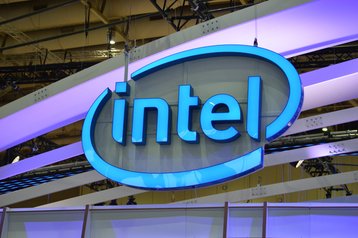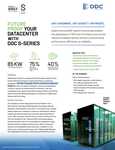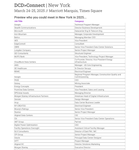Intel’s future could be in question after several reports emerged over the weekend claiming that Broadcom and TSMC were weighing up plans to acquire some of the chip maker’s assets.
The Wall Street Journal reported that Broadcom is looking into the possibility of acquiring Intel’s chip design business, while Bloomberg noted that TSMC was eyeing up some of the chipmaker’s factories.
While the Bloomberg report initially claimed that the acquisition was at the request of Trump administration officials, a separate Reuters report published several hours later said President Trump was unlikely to approve of a foreign company operating Intel’s US factories.
Trump has repeatedly criticized Taiwan over the issue of chip manufacturing, claiming that the country “stole [the US’] chip business” and now accounts for “about 98 percent of the chip business” – Taiwanese chip companies produce about 60 percent of the world's chips, but more than 90 percent of leading-edge chips, including Nvidia's data center GPUs.
In January 2025, Trump pledged to “return production” of computer chips and semiconductors to the United States by imposing a “100 percent tax” on their overseas production, claiming that tariffs would incentivize companies to bring manufacturing back to the US.
Tariffs are paid by the importer, not the exporting nation.
This is not the first time questions have been asked about the future of beleaguered chipmaker Intel. After the company posted a $1.6 billion net loss for Q2 2024, then-CEO Pet Gelsinger was asked to present the company’s board of directors with a plan to offload company assets and cut costs. According to reports from the time, ideas included the potential sale of the company’s programmable chip unit, Altera, and a halt or abandonment of the planned $32 billion chip fab in Germany.
Intel ultimately did halt construction on its facilities in Germany and Poland, in addition to cutting 15,000 jobs from its global workforce, reducing R&D and marketing spend by billions between now and 2026, cutting capex by 20 percent, and reducing non-variable cost of goods sold by roughly $1 billion in 2025.
Intel also decoupled its Foundry Services business from the company, with Gelsinger telling staff in a September 2024 memo that Intel Foundry would now operate as “an independent subsidiary inside of Intel” in order to provide “external foundry customers and suppliers with clearer separation and independence from the rest of Intel.”
Gelsinger ‘retired’ from Intel in December 2024 and in January 2025, the company posted its third consecutive quarterly loss, with fourth-quarter revenue down seven percent year-on-year (YoY) to $14.3 billion, whilst full-year revenue declined by two percent YoY to $53.1 billion.
In late September 2024, Intel reportedly rejected an offer from Arm to acquire the company’s product division after the British chip company made a “high-level inquiry” but was ultimately told the unit wasn’t for sale.
That same month, asset manager Apollo reportedly offered to invest up to $5 billion in Intel as reports surfaced that rival chipmaker Qualcomm was also eyeing a takeover of the struggling semiconductor giant.







